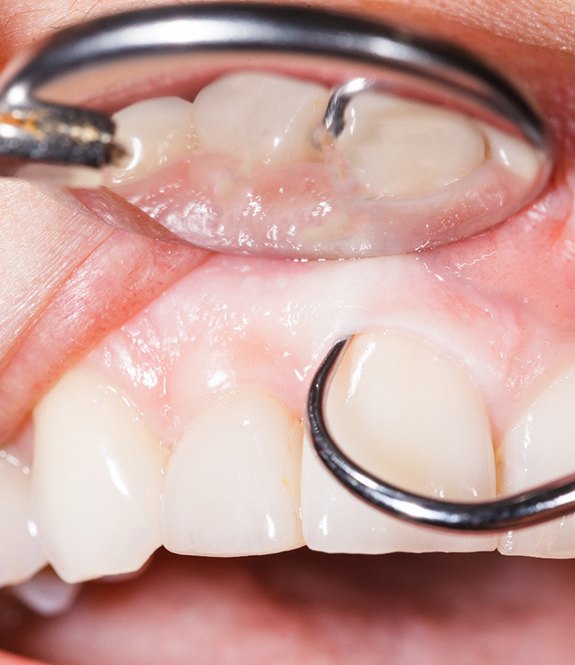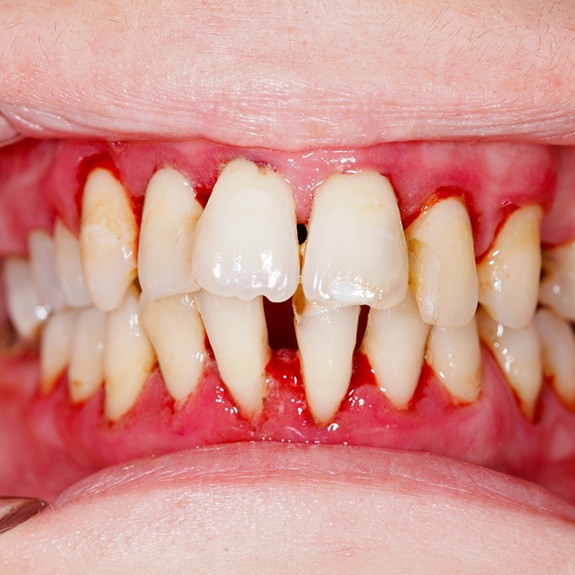Information?

Gum disease is an incredibly common form of dental disease, both in the United States and abroad. For months and even years at a time, people tend to overlook the symptoms of the condition, which is common for nearly all forms of gum disease. This is why routine exams are so important. Only dentists can catch the early signs before the infection has a chance to turn into periodontitis. If this occurs, deep cleaning is needed to prevent further spread. If you have sensitive or inflamed gums, don’t hesitate to contact Sunny Dental and our dentists will get you on the right treatment plan!


Traditional dental cleanings are meant to remove plaque and tartar from the surfaces of teeth and the gums, but what happens when this harmful bacteria reaches underneath gum tissue? In this instance, deep cleaning is needed to both remove bacteria and stop the gum infection from spreading.
Scaling is a process in which plaque and tartar are chipped away from enamel that’s both visible and underneath gum tissue. This is exactly why brushing, flossing, and traditional cleanings are not enough to resolve advanced gum disease. Once scaling is performed, root planing comes next. This step involves smoothing out the tooth roots, allowing them to reattach to the gums. It also reduces the risk of the gum infection coming back. Keep in mind that scaling and root planing usually require multiple appointments to complete.

When you need scaling and root planing treatment, it’s likely because you’ve started to notice the symptoms of gum disease. This includes:
When you come to our office, we can determine if scaling and root planing treatment are right for you. This is done by examining specific areas of your gum tissue, the amount of plaque and tartar that’s built up over time, and whether or not your periodontitis is transitioning into the advanced stages. Additionally, we will measure the depth of your gum pockets. The deeper they are, the more of an indicator they become for advanced gum disease.

Before your treatment begins, our dentists make sure to provide you with sufficient local anesthetic. This effectively numbs your gum tissue, preventing any discomfort from being felt during the scaling and root planing process. Once we’ve done as much as we can do in a single appointment (which can vary depending on the severity of your gum disease), the local anesthetic will need time to wear off. Once it does, your gums will likely feel tender. If you experience any mild discomfort after treatment, just know that this is normal and you should continue your oral care routine. Soon enough, your gums will begin the healing process and start regaining a healthier appearance.
